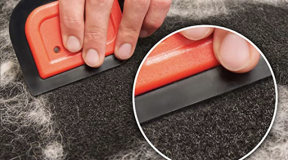Surf schools are a controversial topic it also includes surf contest judging discussion.
Although marketing forces would have us believe otherwise, the majority of surfers are not overjoyed with the introduction of the modern surf schools. Even though there are some very fine surf schools operating today. Surfers often blame surf schools for filling the lineup with people, who can’t surf. This is an over simplification of the problem, and pointing the finger at the entire surf school industry is misguided.
The main issue is that everyone wants to surf, and they want to surf now. People don’t understand just how difficult surfing really is, and they try to take short cuts. They want the ability of a surfer with ten years experience, and they want it in two weeks. Unfortunately there are surf schools out there that take advantage of this situation. These schools know that if they explained the reality of learning to surf, they would get fewer students.
This omission of the truth is a grave injustice to the learner surfer. The newcomer to surfing needs to be able to trust the information given to them by the surf school operator whom they have paid, to teach them to surf. But sadly in many cases they cannot.
Also, because learners quite naturally assume that they should be able to trust all so called surf instructors to guide them correctly. These learners no longer ask the more experienced surfers in the water for guidance. And conversely most experienced surfers no longer offer it. And so we have a self perpetuating dysfunctional cycle.
So we now have a serious problem, many people now enter surfing through a surf school without getting the background knowledge that is absolutely vital to their safety and future development as a surfer.
The root of the problem is this; you simply cannot teach anyone to surf in a couple of hours let alone a couple of weeks, it’s just not possible. Anyone saying they can is putting profits before principles. The absolute best a surf school can do is to give you a glimpse of what it could feel like to ride waves, while standing on a surfboard. That’s it!
Yes a personal, accredited, well trained surf coach, who is an experienced surfer themselves (minimum 10 years), can be of great benefit to the learner surfer over a period of time. But that requires serious money. No matter what the newcomer to surfing may do, they must get in the habit of seeking guidance from the more experienced surfers in the water. That is where the real knowledge is, those who have gone before, know the path.
This may all sound daunting? But don’t sweat it; the Surfing Gooroo will help you to find a good surf coach or surf school. Just use the Surfing Gooroo’s 10 point checklist to surf schools. Then you will know what to expect from a genuine surf school, and how to spot the schools that need to be avoided at all costs.
The reputable surf schools know and understand these problems; they know that most of their customers have not had the luxury of growing up in a surfing community. The reputable surf schools know that the best they can offer their students, at a reasonable price, is a surfing experience. And they also know that if you want to take your surfing any further, that you’re going to have to learn the hard way, just like the rest of us did. Because in surfing, there are no short cuts.
Reputable surf schools do the best that they can with the limited resources and time at their disposal. Let’s face it, to get a surf school to actually teach you everything that you need to know, they would have to book you in for five hours a day, for twelve months, and charge you a small fortune. This is simply because, in surfing, there is just so much to learn. We surfers have a tendency to forget the years we spent as kids learning the stuff we now take for granted. We also forget that this stuff was taught to us by our parents, siblings, or older surfers in the water.
We didn’t just wake up one day and suddenly become experienced surfers. Unfortunately these days’ learner surfers are often viewed with resentment by the more experienced surfers in the water. This is due to the sheer volume of learners being pushed into the lineup, with zero knowledge by the less reputable surf schools. This resentment is misguided yet it is there just the same. The side-effect of which is that the knowledge once freely given in the past, is sadly no longer being passed on to the newcomer. Without this knowledge, of course the newcomer to surfing will not know where to be and what to do. It is not the learner surfer’s fault that nobody bothered to teach them.
Surf schools must deal with the reality that although most of their customers just want to be standing on a surfboard as soon as is humanly possible. It is irresponsible and dangerous to all in the lineup to keep increasing the numbers in the water without sharing with them the knowledge needed to survive, have fun and grow as a real surfer.
If you want to become a real surfer, then it is this crucial knowledge that you will need to know. The Surfing Gooroo has been specifically designed to fill this void and provide you with the knowledge that was once freely passed from one surfer to the next. But surf schools also need to step up to the plate and teach their students properly. They must teach paddling skills, etiquette and the rules, they must explain the realities of localism and the crowds, (see The Surfing Gooroo’s 10 point checklist to surf schools), If they do not take on this responsibility, then they are feeding the problem. They are setting there students up as potential victims of surf rage. Any surf school that does not pass on the knowledge you need, has no right to call themselves a surf school. Sure a supervised tourist oriented surfing activity they may be, but surf school, they are not.
The Surfing Gooroo says: after your time in a genuine surf school, make sure you visit The Surfing Gooroo to continue on your surfing education. But remember that surf schools promising unrealistic results are best avoided.
So how do I find the genuine surf schools?
Well this where, ‘The Surfing Gooroo’s 10 point checklist to surf schools’ comes into play. If you are thinking of booking a lesson with a surf school, then learn this information first. Ask your potential surf instructor if they teach the following 10 points. If the answer is yes, then you have found a genuine surf school.
If the answer is no, regardless of what reasons they may give, you have found a supervised surfing experience, calling themselves a surf school. If that is all you are looking for, then go and have some fun. But if you really want to learn to surf then keep looking until you find a surf school that teaches what you really need to know.
The genuine surf schools are easy to find, they will explain and teach to you the following points of The Surfing Gooroo’s 10 point checklist to finding a genuine surf school.
1. They will explain that; learning to surf takes time and commitment. That the unrealistic promises of some surf schools, claiming you’ll be able to surf within one lesson is a load of rubbish. They will calmly explain to you what being able to surf in one lesson really means. It’s a supervised one time only ‘surfing experience’. It’s for people who just want to feel what it is like to stand on a surfboard for a moment. So they can show a photo of them ‘surfing’ to their friends back in their landlocked homes, where surfing is a weird and exotic experience. Of course there is nothing wrong with that. A supervised surfing experience is fine if that is what you want. But it will not teach you much that is useful about surfing.
2. They will usually suggest a minimum 3-4 week foundation program that will benefit you for many years to come.
3. They will always teach you how to paddle first, because if you cannot paddle you cannot surf. This training will focus on how to get out through the white water without, ruining another surfers wave or getting run over in the process.
4. They will teach you how to paddle into a wave under your own power. They may have to push you into a wave once or twice, to give you a feel for it, but after that, they will have you catching your own waves.
5. They will teach you about not dropping in on other surfers. They will explain the rules of surfing in detail and explain why they are important. To you as a beginner, and how you can apply them.
6. They will teach you how to spot a safe place to learn.
7. They will explain to you the realities of localism and surf etiquette, and why it’s so important to be aware of it, even if you don’t agree with it.
8. A genuine surf school will never take you out into crowded surf breaks or close to a crowd. They would never place the school in the middle of a point break lineup, where you are in danger of being hit by other surfers speeding down the line of the breaking wave.
9. A genuine surf school will put your safety above all else. If your instructor pushes you into a wave with an oncoming surfer already riding it. I.e. puts you in a position where you are dropping in. Then complain and demand your money back. A genuine surf school would never do this; it is very dangerous to all. Don’t fall for the line that ‘surfers should not be surfing through the surf school’ either. The exact opposite is actually true. If your class has been placed in a position that causes surfers to be riding through the school, then the instructor is at fault. A genuine surf school will always look for a quiet place to teach.
10. A genuine surf school only employs instructors who are not only accredited but are also experienced surfers themselves. Where as others often use surf instructors, who although they may have done an instructors course, they often can barely surf themselves. Therefore ask how long your instructor has been surfing for? If it’s less than 15 years, then keep looking. You don’t want a beginner teaching a beginner.
Remember if the surf schools you thinking of booking a lesson with; don’t answer yes to these points? Then keep on looking. Otherwise you may be putting your safety on the line. Not mention that you will be wasting your money if you truly wish to learn to surf.
You might like to check out this site: http://www.nssia.org, this is The National Surf Schools and Instructors Association, which is a US, based non-profit organization, dedicated to fostering surf etiquette, water safety, and quality surfing education programs. It is the ASI recognized official accreditation and certification body for surf schools in the US, Costa Rica, and Eastern Canada.
Ben Bennink has been a surfer for more than 2 decades. He has competed succsessfuly at PRO/AM level surfing for more than 20 years and is the Author and copyright holder of the Surfing Gooroo learn to surf guide [http://surfing-gooroo.com]
Article Source: http://EzineArticles.com/expert/Ben_Bennink/37526
Article Source: http://EzineArticles.com/220559




